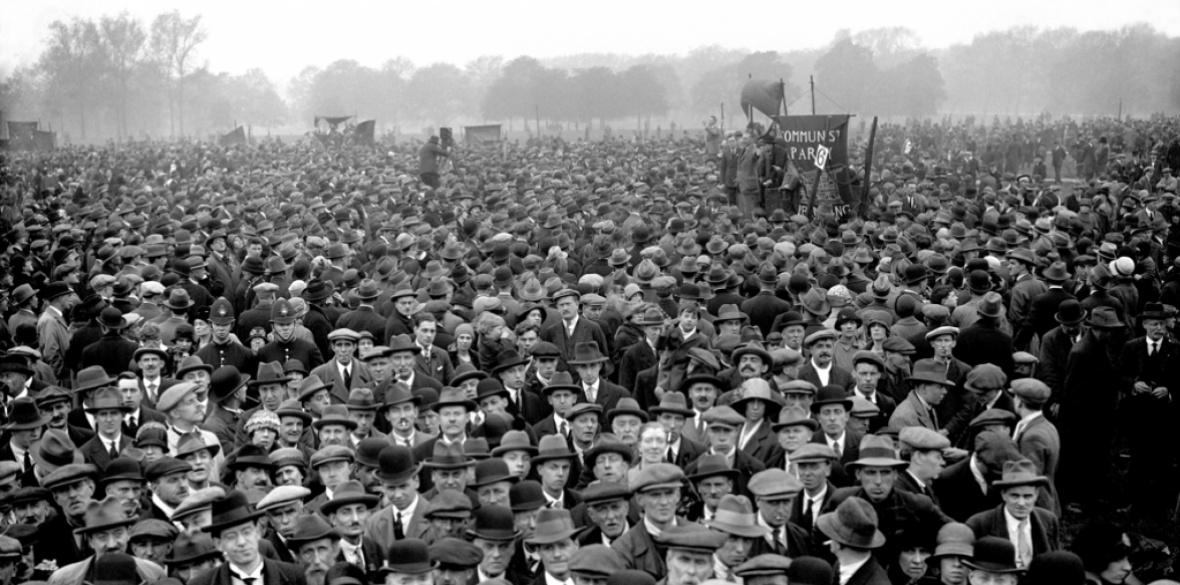This is the last article you can read this month
You can read more article this month
You can read more articles this month
Sorry your limit is up for this month
Reset on:
Please help support the Morning Star by subscribing here
TRADE UNIONISM received a shot in the arm in the latter part of the 19th century when previously unorganised workers, designated unskilled or semi-skilled, stood up to their employers.
Memorable strikes in the process known as New Unionism included those by the Bryant & May matchwomen in 1888 and by London dockers the following year.
These and subsequent actions led to the establishment of new unions alongside those catering for the skilled labour force.
In many ways, disputes taking place in many countries at the moment, based on previously unorganised groups of workers, especially in the fast-food and hospitality industries, can be seen as a New Unionism Mk 2.
One major distinction is that, whereas Victorian-era craft unions largely stood aside from the struggles against mass poverty and dog-eat-dog conditions, today’s unions are supportive of attempts to bring the benefits of trade unionism to those in insecure employment.
The historical trade union slogan “Unity is Strength” is not lost on the new generation of workers and they are making full use of new social media to advance their cause.
Capitalism’s tendency towards concentration and centralisation means that many of the companies confronted by workers on insecure contracts are national or international conglomerates.
Fast-food and hospitality companies cannot be as hard-faced and immune to criticism as the iron masters, coal-owners and industrial barons of yesteryear.
Corporate image matters, which explains why pub chain Wetherspoon, fast-food franchises McDonald’s and TGI Friday’s and even worldwide distributor Amazon have taken faltering steps towards demands by their workers and also their customers.
Labour’s development into a mass-membership party — largely through increased recruitment of young people — has also had an effect.
Awareness that their generation has suffered tuition fees, withdrawal of education grants and state benefits, reduced minimum wage entitlement and employment practices that make it nigh on impossible for them to buy or even rent decent housing leads many to feel there must be a different way of doing things.
That feeling is exacerbated by knowing that the reason proffered for restrictions imposed on them — an austerity agenda justified by the cost of bailing out the private banking system — doesn’t affect other sections of society.
The finance sector that caused the 2008 economic crisis didn’t take a hit. Its profits, dividends and bonuses continued without interruption.
Transnational corporations, including the likes of Amazon, have been able to play one country off against another, reducing corporate liability to taxation.
Neoliberal governments excuse these injustices by insisting that this is the way of a globalised world and congratulate themselves excitedly whenever one of these lords of the universe announces that it will, voluntarily, increase the amount of tax it pays.
Labour’s determination to buck the neoliberal trend, to reject the corporate tax-avoidance norm, insist on tax justice, bring in trade union rights for workers from day one and reverse the trend towards privatisation is changing public perceptions.
Even Theresa May, in her damp squib of a speech to Tory Party disgruntled delegates in Birmingham today, felt obliged to say that the age of austerity is over because the people’s “hard work has paid off.”
In reality, she and her party will continue fighting to keep the share of national income devoted to profits rather than wages steadily increasing.
Their nefarious plan can be frustrated by more effective trade union activity, especially in newly organising sectors, and also by political action, notably in the election of a Corbyn-led Labour government at the earliest opportunity.












